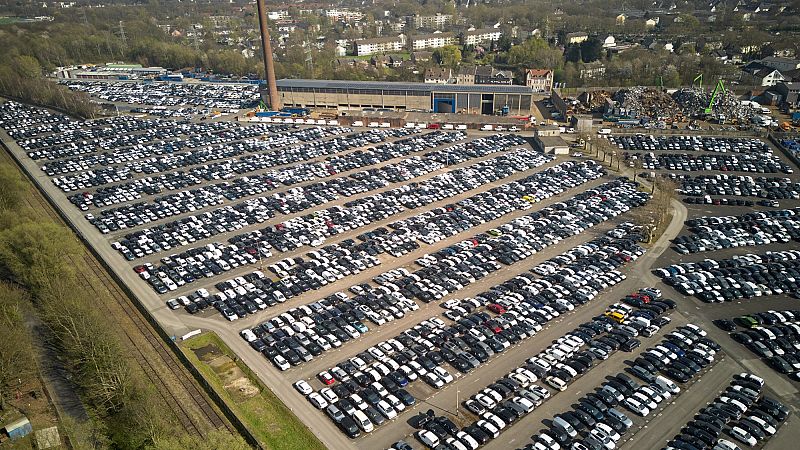Economic momentum in the eurozone stalled in April, as recent trade tensions battered the services sector, undermining fragile optimism for the bloc’s recovery path.
The eurozone’s Composite Purchasing Managers’ Index (PMI), a closely watched gauge of private sector health, dipped to 50.1 in April from 50.9 in March, falling short of consensus expectations of 50.3.
The figure, barely above the 50.0 threshold that separates growth from contraction, suggests stagnation across the bloc’s economy as the second quarter began.
April’s performance marked a divergence between a mildly resurgent manufacturing sector and a services sector that slid into contraction. The flash Services PMI fell from 51 to 49.7, the first decline in five months, while the Manufacturing PMI nudged higher to 48.7, surpassing forecasts of a fall to 47.5.
Surveys witnessed a sharp deterioration in business confidence across the euro area, with sentiment sinking to its lowest level since November 2022 and remaining well below the series average.
The decline was broad-based, affecting both manufacturing and services, and was evident across most major eurozone economies, reflecting widespread caution amid rising geopolitical and trade-related uncertainty.
In Germany, the eurozone’s industrial heartland, business activity retreated after three months of expansion. The Germany’s Composite PMI dropped from March’s 51.3 to 49.7 in April.
Services suffered a steeper fall, with the sector’s PMI plunging to 48.8, down from 50.9, well below expectations of 50.3.
Service providers cited tariff-related uncertainty and hesitant clients. “Concerns over tariffs and the broader economic outlook have led to delays in decision-making and restrained spending,” de la Rubia said. Despite this, employment in Germany’s private sector dipped only marginally, and manufacturing margins improved due to falling input prices, particularly in energy.
The fall in energy prices, tied to fears of a US recession, has been a tailwind for producers. Manufacturing firms also reported a rare rise in export orders and a modest ability to raise selling prices, hinting at budding pricing power for the first time in nearly a year.
Dr. Cyrus de la Rubia, Chief Economist at Hamburg Commercial Bank, said manufacturing “seems to be holding up better than expected” in the face of the fresh tariffs announced by US President Donald Trump earlier this month.
These include a general 10% levy and a 25% charge on car imports. “Most manufacturers in the eurozone are not too fazed,” he said. “Instead of falling off a cliff, they’ve actually increased production for the second month in a row, and even more robustly than in March.”
Story Continues
